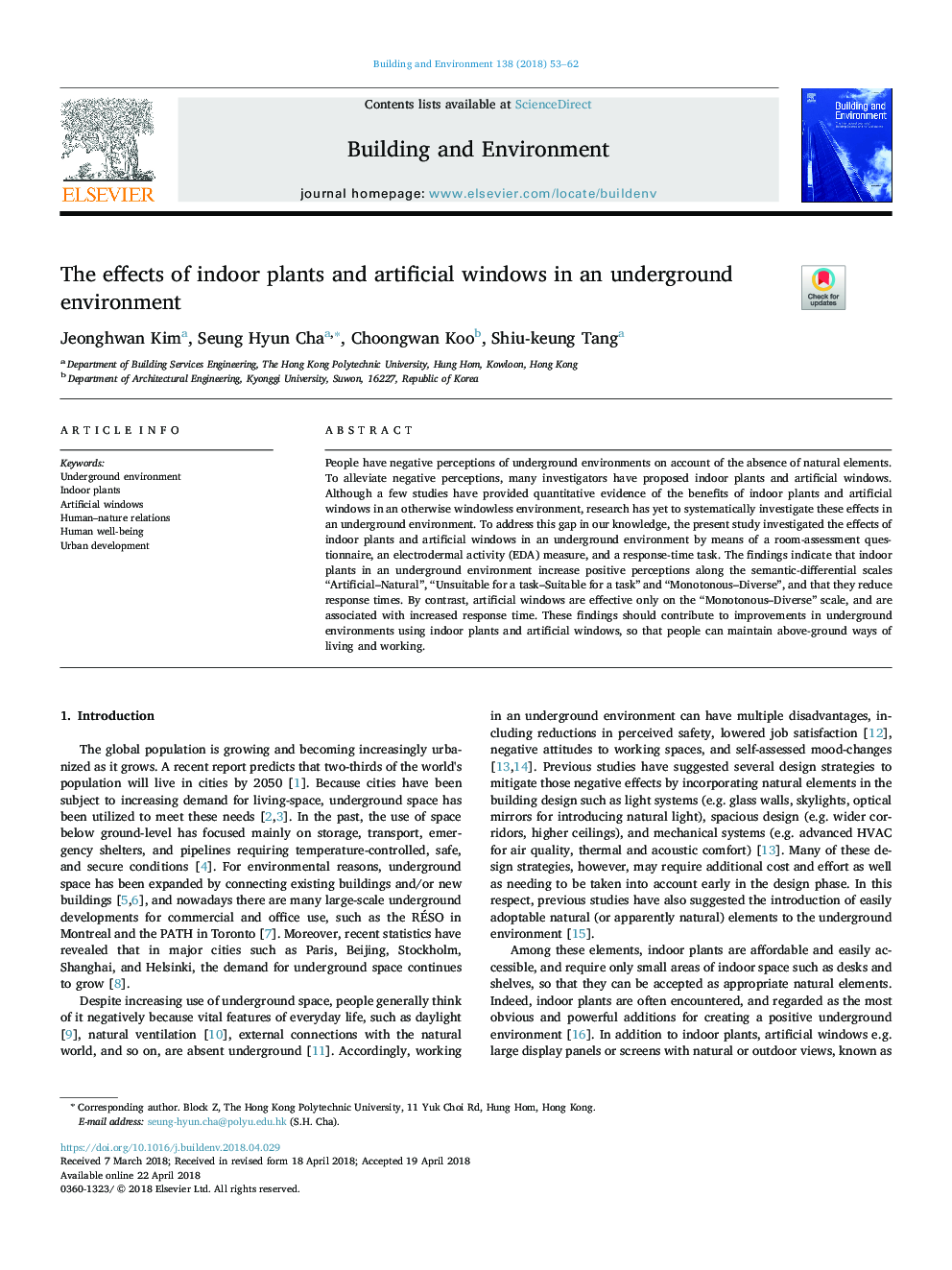| Article ID | Journal | Published Year | Pages | File Type |
|---|---|---|---|---|
| 6697162 | Building and Environment | 2018 | 10 Pages |
Abstract
People have negative perceptions of underground environments on account of the absence of natural elements. To alleviate negative perceptions, many investigators have proposed indoor plants and artificial windows. Although a few studies have provided quantitative evidence of the benefits of indoor plants and artificial windows in an otherwise windowless environment, research has yet to systematically investigate these effects in an underground environment. To address this gap in our knowledge, the present study investigated the effects of indoor plants and artificial windows in an underground environment by means of a room-assessment questionnaire, an electrodermal activity (EDA) measure, and a response-time task. The findings indicate that indoor plants in an underground environment increase positive perceptions along the semantic-differential scales “Artificial-Natural”, “Unsuitable for a task-Suitable for a task” and “Monotonous-Diverse”, and that they reduce response times. By contrast, artificial windows are effective only on the “Monotonous-Diverse” scale, and are associated with increased response time. These findings should contribute to improvements in underground environments using indoor plants and artificial windows, so that people can maintain above-ground ways of living and working.
Related Topics
Physical Sciences and Engineering
Energy
Renewable Energy, Sustainability and the Environment
Authors
Jeonghwan Kim, Seung Hyun Cha, Choongwan Koo, Shiu-keung Tang,
